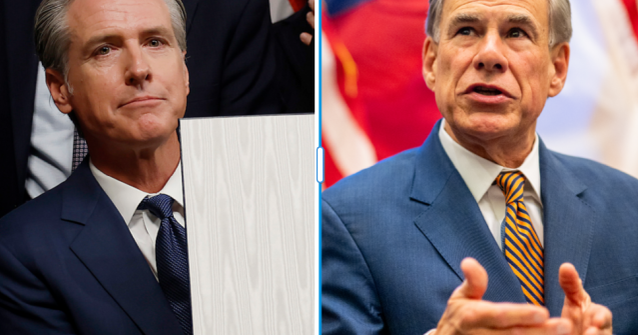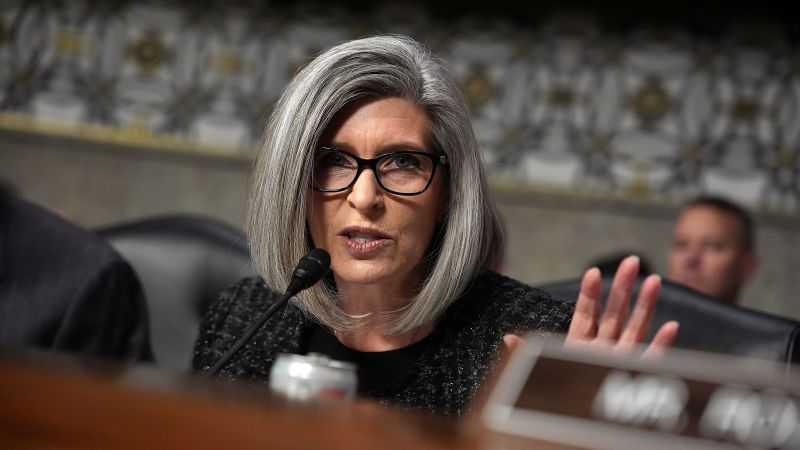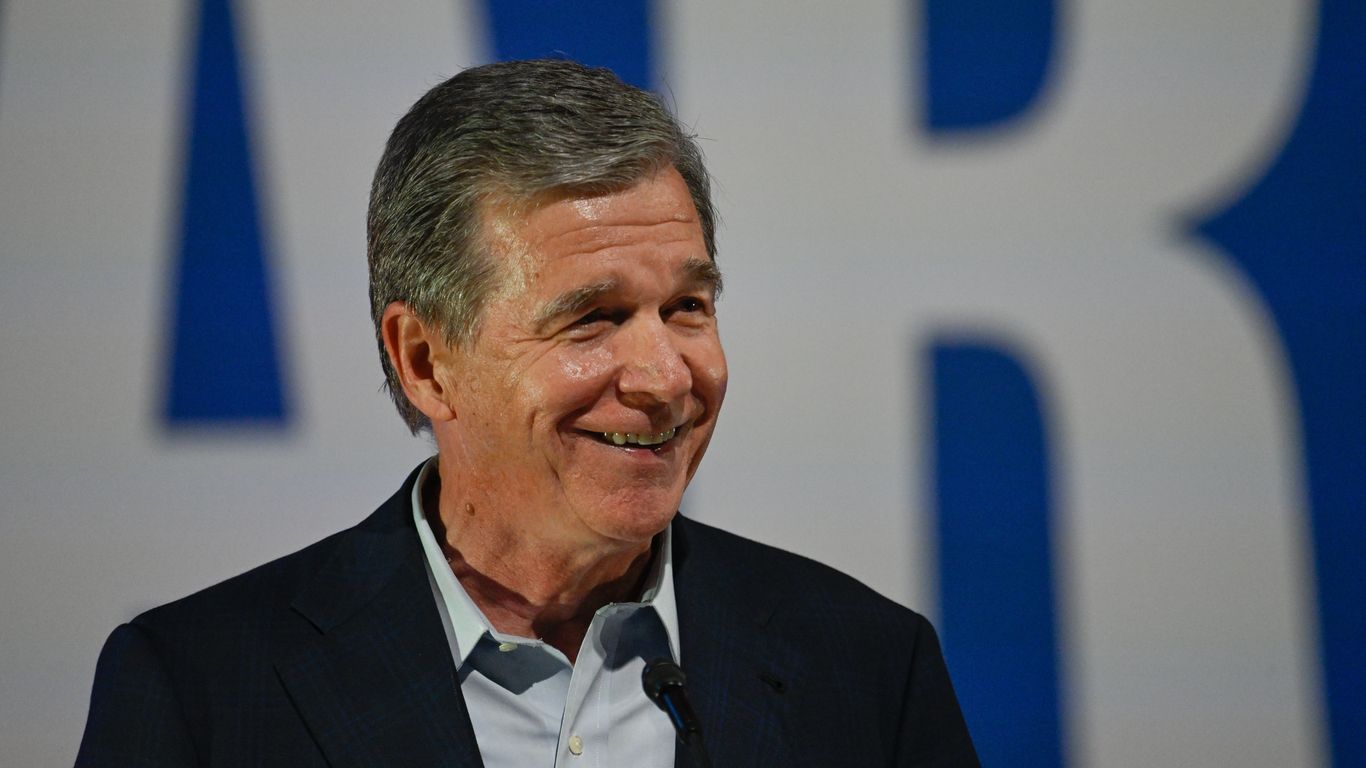Iowa Senator Joni Ernst Announces Retirement
Introduction
In a surprising announcement, U.S. Senator Joni Ernst of Iowa has confirmed that she will not run for reelection in 2026. This decision comes after months of speculation about her plans, and will mark the end of her two-term tenure in the Senate. Iowa is known for its long-serving incumbents, and Ernst's departure will open up a highly coveted Senate seat for the state.
Reasons for Retirement
Ernst's decision to retire is a significant loss for the Republican party. The Senator, who is known for her strong conservative views, has been a vocal advocate for issues such as gun rights and pro-life policies. However, she has also faced criticism and backlash for her support of former President Donald Trump. It is unclear what factors ultimately led to her decision to not seek reelection, but it is speculated that it may be due to her declining popularity among Iowa voters.
Iowa's Political Landscape
With Ernst's departure, Iowa's political landscape is set to undergo significant changes. The state has a history of electing Republican Senators, but Democrats are hopeful that they can win the upcoming election and secure a majority in the Senate. This could have far-reaching implications for national politics and the balance of power in Washington. As the race for the open Senate seat begins, all eyes will be on Iowa to see how the political tides may turn.
Joni Ernst is a Republican U.S. Senator from Iowa, serving since January 2015. Born on July 1, 1970, in Red Oak, Iowa, she grew up on a family farm and later graduated from Iowa State University and earned a master’s degree from Columbus State College. Ernst served over 20 years in the U.S. Army Reserves and Iowa Army National Guard, including deployment as a company commander during Operation Iraqi Freedom. Before the Senate, she was Montgomery County auditor (2005–2011) and then served in the Iowa State Senate from 2011 to 2014[1][2][6][7].
Ernst gained national recognition during her 2014 Senate campaign with a memorable ad emphasizing her farming roots and fiscal conservatism, declaring she knew how to “cut pork” in Washington. She became the first woman to represent Iowa in the U.S. Senate and the first female combat veteran elected to the Senate. Her political positions are firmly conservative, advocating for limited federal government, states’ rights, repeal of the Affordable Care Act, and strong support for Iowa farmers and small businesses. She has also opposed abortion and supported gun rights[2][7].
In the Senate, Ernst has been active on committees related to agriculture, veterans’ affairs, and national defense. She delivered the Republican response to President Obama’s 2015 State of the Union address and supported many of President Trump’s policies, including tax reform and attempts to repeal the Affordable Care Act. She voted against Trump’s conviction in his 2020 impeachment trial. Recently, Ernst sponsored legislation focused on food security and farm protection, reflecting ongoing engagement with agricultural issues important to Iowa[1][2][5].
Ernst continues to represent Iowa with emphasis on economic growth, national defense, and veterans’ support. She resides in Red Oak, Iowa. Donald John Trump, born June 14, 1946, in Queens, New York, is an American businessman, media personality, and politician. He graduated from the University of Pennsylvania’s Wharton School in 1968 with a degree in economics. In 1971, he took over his family’s real estate business, renaming it the Trump Organization, through which he expanded into building and managing skyscrapers, hotels, casinos, and golf courses. Trump gained widespread fame as the host of the reality TV show *The Apprentice* from 2004 to 2015, which helped establish his public persona as a successful entrepreneur.
Trump entered politics as a Republican and was elected the 45th president of the United States, serving from 2017 to 2021. His presidency was marked by significant policy actions including tax cuts, deregulation, the appointment of three Supreme Court justices, renegotiation of trade agreements (notably replacing NAFTA with the USMCA), and a focus on immigration control including border wall expansion. He withdrew the U.S. from international agreements such as the Paris Climate Accord and the Iran nuclear deal, and engaged in a trade war with China. His administration’s response to the COVID-19 pandemic was criticized for downplaying the virus’s severity. Trump was impeached twice by the House of Representatives—first in 2019 for abuse of power and obstruction, and again in 2021 for incitement of insurrection—but was acquitted by the Senate both times.
After losing the 2020 election to Joe Biden, Trump challenged the results, culminating in the January 6, 2021, Capitol riot. He remains a central figure in American politics, having won the 2024 presidential election and returned as the 47th president in 2025, continuing to promote policies aimed at economic growth, border security, and military strength[1][2][3][4]. The **Republican Party**, also known as the **GOP (Grand Old Party)**, is one of the two major political parties in the United States, founded in 1854 primarily by anti-slavery activists opposing the Kansas-Nebraska Act and the expansion of slavery into U.S. territories[1][5]. It was formed from a coalition of former Whigs, Democrats, and Free Soil party members who shared opposition to slavery and a desire for a national political force promoting economic development and social order[2][5].
The party's early base included northern Protestants, businessmen, factory workers, professionals, and prosperous farmers. It strongly supported pro-business policies like the national banking system, the gold standard, railroads, and high tariffs[1][3]. Abraham Lincoln, the first Republican president elected in 1860, led the party through the Civil War, championing the abolition of slavery and the preservation of the Union. This solidified the GOP’s dominance in national politics for decades, especially in the North, while it remained weak in the South[1][5][6].
Historically, the Republican Party was instrumental in major social reforms, including the Emancipation Proclamation and the passage of the 13th, 14th, and 15th Amendments, which abolished slavery, guaranteed equal protection, and secured voting rights for African Americans, respectively[6]. The party also supported women's suffrage early on, backing the 19th Amendment[6].
In the 20th century, Republicans were associated with both conservative economic policies—favoring reduced taxes, limited government regulation, and individual economic freedom—and a strong national defense[7]. The party experienced ideological splits, notably in 1912 when Theodore Roosevelt led a progressive faction away from the conservative wing[1][5]. Today, the GOP continues to promote conservative social policies and states’ rights, opposing extensive federal intervention and advocating free-market principles[7].
For readers interested in business and technology, ## Overview of the Democratic Party
The Democratic Party is the oldest continuing political party in the United States, with its roots tracing back to 1792 as the Democratic-Republican Party. Founded by Thomas Jefferson and James Madison, it initially advocated for a decentralized government and states' rights, opposing a strong central authority[1][2]. Over time, the party evolved, becoming more progressive and supportive of federal government intervention in social and economic affairs.
## History
The modern Democratic Party was formally established in 1828, with Andrew Jackson's presidential campaign marking a significant turning point. Jackson's successful campaign expanded voting rights to all white men, regardless of land ownership, and further reduced federal power[3][6]. The party became deeply divided during the Civil War era, with Northern Democrats supporting limited slavery expansion and Southern Democrats advocating for its perpetuation[3][5]. Post-Civil War, the party became a stronghold for Southern whites who opposed Reconstruction[3].
## Key Achievements
The Democratic Party has played a pivotal role in shaping U.S. history:
- **Civil Rights**: The party supported key civil rights legislation, including the Voting Rights Act and the Civil Rights Act of 1964.
- **Social Programs**: Democrats have been instrumental in establishing and expanding social programs like Social Security, Medicare, and Medicaid.
- **Economic Policies**: The party has often championed progressive economic policies, including labor rights and environmental protection.
## Current Status
Today, the Democratic Party is a major force in U.S. politics, advocating for a strong federal government role in addressing social and economic issues. It emphasizes progressive policies on healthcare, climate change, and economic inequality[6].
## Notable Aspects
- **Symbolism**: The party's symbol, the donkey, originated from Andrew Jackson's opponents calling him a "jackass," which his supporters adopted as a mascot[6].
- **Diversity**: The party has become increasingly diverse, representing a wide range of socio-economic and Discover related stories and their connections to this article Explore connected events with detailed insights and relationships Key entities mentioned across connected events Discover patterns and trends across related stories Casey Means, Trump's surgeon general pick, faces uphill confirmation amid vaccine questions and Kennedy health policy ties. Zohran Mamdani meets President Trump at the White House to discuss a $21B housing plan for Sunnyside Yard and bipartisan housing reform. CNN review finds dozens of FBI witness interviews missing from Epstein files, fueling questions about transparency. Exploring White House push for Israel to strike Iran first, amid worries of retaliation, casualties, and political calculations. Trump administration unveils an aggressive crackdown on healthcare fraud, freezing Minnesota funds and expanding Medicare/Medicaid integrity nationwide.About the People Mentioned
Joni Ernst
Donald Trump
About the Organizations Mentioned
Republican Party
Democratic Party
🔗 Connected Events Overview
📊 Quick Insights
📅 Connected Events Timeline
👥 People Involved in Connected Events
Connected through:
🏢 Organizations & Products
🏢 Organizations
🛍️ Products
💡 Connected Events Insights
🔥 Trending Topics
Trending Blogs in Politics

Casey Means Faces Uphill Battle as Surgeon General Nominee in Vaccine Scrutiny
Mamdani's Bold White House Pitch to Trump

Missing FBI Records Spark Epstein Files Controversy

White House Strategy: Israel Might Strike Iran First

Federal Crackdown on Medicaid Fraud: Minnesota First, Nationwide Expansion










